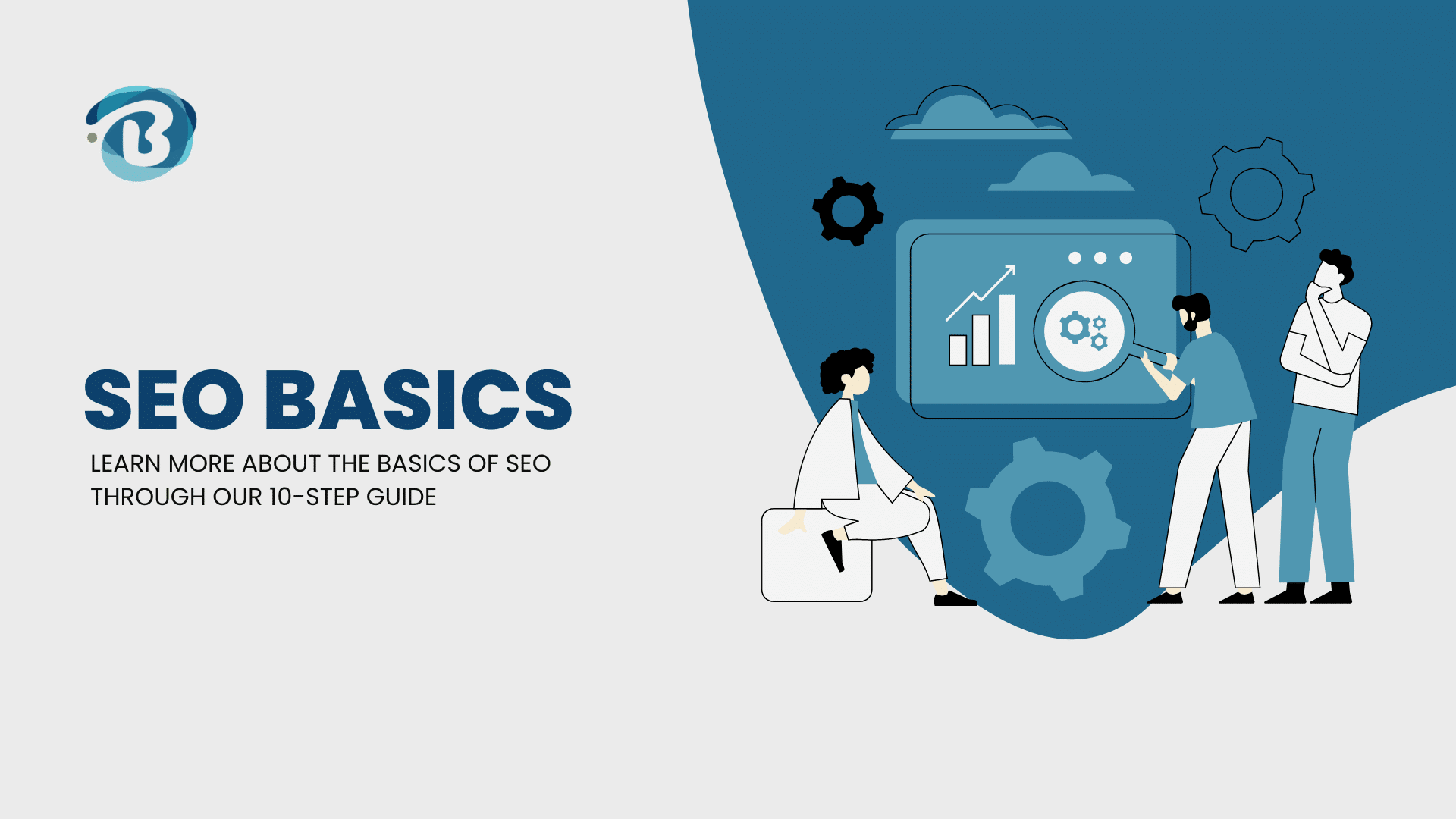Search Engine Optimisation, or SEO, is the art and science of making your website more visible and attractive to search engines like Google.
In today’s digital age, where the internet is saturated with websites, standing out in search results is crucial for any site’s success. This comprehensive guide delves into the intricacies of SEO, offering insights and strategies to enhance your online presence.
Google handles up to 90% of all global online searches.
Section 1: The Essence of SEO
What is SEO and Why Does It Matter?
SEO is the process of optimising a website to rank higher in search engine results. It involves understanding how search engines work and what keywords and trends people search for online.
The goal is to increase the quality and quantity of traffic to your site through organic search results. In a world where most online experiences begin with a search engine, SEO is not just beneficial; it’s essential.
SEO is not just about appeasing Google to improve your site traffic; it’s about building your brand and website so that humans and search engines can’t help but love your website and its content.
SEO is always changing
SEO is ever-evolving because search engines are getting smarter, and humans constantly change their behaviour. Google launches VERY regular algorithm updates, and user behaviour shifts with trends, seasons, and years.
Staying informed about the latest trends and best practices is key to maintaining a competitive edge. This includes understanding the importance of mobile optimisation, the role of artificial intelligence in search algorithms, and the growing significance of voice search.
Section 2: Starting With SEO
Start Your Business' SEO Journey
The first step in SEO is understanding your audience and what keywords they use to find services or products like yours. This involves keyword research to identify terms and phrases relevant to your business.
Once you have a list of keywords, the next step is to incorporate them into your website’s content, titles, and meta descriptions in a natural way that provides value to your audience.
Significance of Keywords and On-Page Elements
Keywords are crucial but are just part of the puzzle. On-page SEO elements like title tags, meta descriptions, and content structure significantly optimise your site.
These elements help search engines understand your page and determine its relevance to a user’s query. Well-optimised on-page elements can significantly improve your site’s visibility in search results.
Section 3: On-Page SEO Strategies
Crafting Effective Meta Descriptions and Title Tags
Meta descriptions and title tags are critical components of on-page SEO. They are the first thing a user sees in the search results, so they must be compelling and relevant. A well-crafted title tag should include the primary keyword and accurately describe the page’s content.
Similarly, a meta description should provide a concise summary of the page and encourage users to click through to your website.
Optimising Page Content
Your website content should be optimised for both search engines and users. This means using relevant keywords naturally throughout your text and ensuring your content is informative, well-written, and valuable to your audience.
High-quality content can lead to longer visit times and lower bounce rates, both of which are positive signals to search engines.
Section 4: Off-Page SEO Tactics
Building a Strong Backlink Profile
Backlinks, links from other websites to yours, are crucial to SEO. They act as endorsements from other sites, signalling to search engines that your content is valuable and trustworthy.
Building a solid backlink profile involves creating high-quality content that other websites want to link to and engaging in outreach activities to promote your content.
The Role of Social Signals
While social signals like shares and likes are not direct ranking factors, they can indirectly impact your Search Engine Optimisation. An active social media presence can drive traffic to your website and increase your brand’s visibility online.
Increased exposure through socials can lead to more backlinks and improved SEO over time.
Section 5: Technical Search Engine Optimisation
Crawling and Indexing
Search engines must first crawl and index your site to appear in search results. Technical SEO focuses on making your site easily accessible to search engine crawlers. This includes having a clean site structure, a well-organised sitemap, and ensuring your content is indexable.
Mobile Optimisation and Site Speed
Mobile optimisation is crucial for SEO with the increasing use of mobile devices to access the internet. Websites should be responsive and load quickly on all devices. Site speed is a ranking factor for search engines, as faster sites provide a better user experience.
Section 6: Content Is King
Creating Valuable Content
The heart of SEO is content. Creating high-quality, relevant content that aligns with your audience’s search intent is key to attracting and retaining visitors.
Your content should answer your audience’s questions, solve their problems, and provide unique insights.
Keyword Research and Content Strategy
Developing an effective content strategy starts with keyword research. This process involves identifying the terms and phrases your target audience uses to search for products or services like yours.
Integrating these keywords into your content helps search engines understand and rank your pages higher.
Section 7: Local SEO and Beyond
Essentials of Local SEO
For businesses with a physical location, local SEO is critical. It involves optimising your site to appear in local search results, making it easier for customers in your area to find you.
This includes claiming and optimising your Google Business Profile listing, gathering local reviews, and ensuring your name, address, and phone number (NAP) are consistent across the web.
Optimising for Local Search Results
To excel in local SEO, focus on creating location-specific content and building local backlinks. Include local keywords in your website’s content and metadata.
Also, manage your online reputation by encouraging customers to leave reviews and promptly responding to feedback.
Section 8: Tracking Your Success
Monitoring Key Metrics
Tracking the performance of your SEO efforts is essential. Monitor critical metrics like organic traffic, search rankings, and conversion rates to understand how well your site is performing.
Regularly reviewing these metrics helps you identify areas for improvement and adjust your strategy accordingly.
SEO Tools and Techniques
Numerous tools are available to help track and analyse your SEO efforts. These tools provide insights into your website’s performance, keyword rankings, backlink profile, and more. Utilising these tools can help refine your SEO strategy and achieve better results.
Using the right tools and partnering with SEO experts will help you keep accurate track of your marketing ROI.
Section 9: Common SEO Myths and Mistakes
Debunking SEO Myths
There are many misconceptions about SEO. It’s important to distinguish fact from fiction to avoid common pitfalls. For example, stuffing your content with keywords or buying backlinks can harm your SEO efforts.
Stay informed about Search Engine Optimisation best practices to avoid these mistakes.
Learning from SEO Mistakes
Making mistakes is part of the learning process in SEO. Analyse your past efforts to understand what worked and what didn’t. Use this knowledge to improve your strategy and avoid repeating the same mistakes
Section 10: The Future of Search Engine Optimisation
Emerging Trends
SEO is continually evolving. Stay up-to-date with the latest trends, such as voice search’s growing importance, artificial intelligence’s role in search algorithms, and the increasing significance of user experience as a ranking factor.
Preparing for Future Changes
To future-proof your website, focus on creating high-quality, user-centric content. Stay adaptable and be ready to adjust your strategy in response to algorithm updates and changing user behaviours.
Stay informed and flexible in your approach to ensure your site remains competitive in the ever-changing SEO landscape.
Consult with the BaseCloud: South Africa's SEO Experts
If you want to succeed online, focusing on SEO is essential. SEO can help you improve your website’s visibility, attract more visitors, and drive growth for your business. As the digital world constantly changes, staying up-to-date with effective SEO techniques is essential.
Consult with the SEO experts at BaseCloud and keep this guide handy as you refine your SEO strategy.




